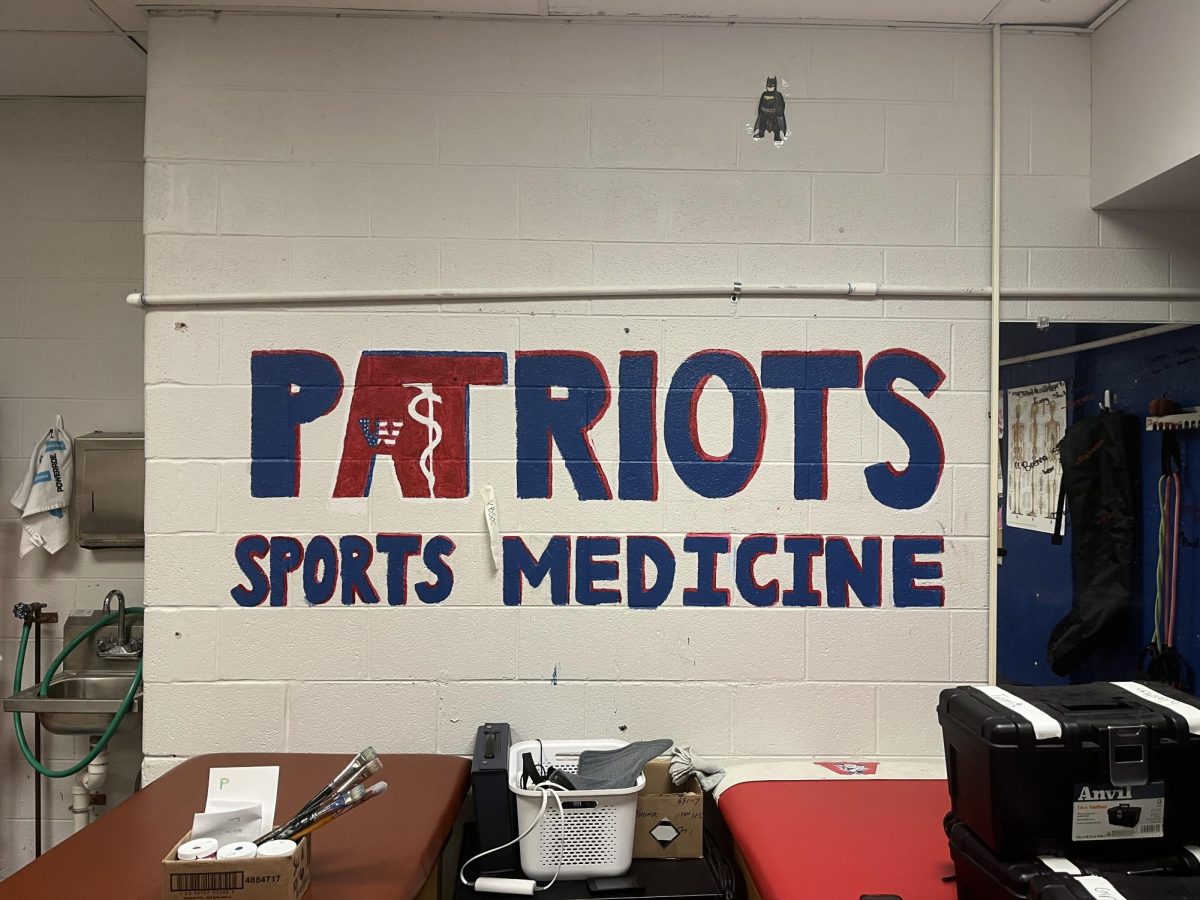The idea of spending years perfecting the skill of throwing objects in the air and catching them without hurting yourself sounds understandably odd; this misconception is typically what people interpret when I attempt to explain to them what color guard is, and most people simply know us as “those people who spin flags during pep rallies and football games.” Color guard is almost always associated with marching band and is rarely mentioned as a stand-alone activity, yet its true difficulty and the experiences associated with it are not widespread.
Guard is a constant war against your instincts. You toss a heavy piece of equipment high into the air, see it spinning rapidly above your head, and you can’t run. You have to watch it fall closer and closer to your body, extend your hands, and catch it at all costs; even if you have to lunge forward, even if it looks like you’re going to catch it at the wrong angle and even if it seems like your hands are going to be cut off if you dare to reach them out underneath the rotating equipment. The idea of being able to catch such high tosses was terrifying to me as a beginner and still is to a certain extent, but going against your body’s natural reactions, defying your instincts, and overcoming your fear of the equipment are essential skills that all guard members must quickly learn in order to progress further.
It’s a dangerous sport, as cuts from sharp edges of equipment, jammed fingers from catching incorrectly, and bruises from the equipment landing on your body are all common and expected. However, more severe injuries are also likely to occur; last field season, which was from early May to early November of 2023, one guard member sprained two of her ligaments, and around the same time, a tossed rifle landed on top of my head and I had to get five staples for the scalp laceration. Though it was an extremely painful and surreal experience, these injuries, both the severe and less severe, serve as lessons for the future safety of all of the guard members.
However, the most notable aspect of guard is the mental battle it puts you through. As with all other sports, guard is an extremely physically taxing activity despite its seemingly soft and graceful nature. The combination of contemporary and modern dance that requires a difficult level of bodily control, plus the tossing of equipment that demands complete focus and more muscle than it may seem, mixes to create an activity that leaves you sweaty, breathless, and worn out in an embarrassingly short amount of time. And that moment, when your muscles begin to ache and your legs become shaky and the only thing that’s fully functional are your sweat glands, your body is at its weakest point and the real fight begins; the fight to keep your body moving, to force your limbs to continue to extend and contract even as your body silently screams at you to stop. This inner conflict between your mind and body is, in my opinion, the most difficult part of being in guard, and it’s something that can only be overcome by pure passion, determination and resilience.
In spite of all of the aforementioned challenges of color guard, it’s one of the most rewarding activities I’ve experienced. The giddy sensation you feel in your chest after a great performance is euphoric, but the community you are surrounded by is genuinely my favorite part of being in guard, and other guard members agree wholeheartedly. “The biggest reason why I enjoy guard is getting to spend so much time with all of my friends. I feel like the relationships I’ve made through guard have been the closest friendships I’ve ever had,” junior Sana Majmudar said.
This tight-knit community can also have a tremendous impact on people and their views of themselves. “Before guard, I hadn’t felt entirely accepted in all the team sports I had been in because I was always afraid to ask for help, but with guard, it was so different. I made friends so easily and found it easy to relax and learn and do what I love. In fact, at the final competition of my first season in guard, I broke down in tears because I was so happy to have performed something I was proud of and worked hard on with people I felt I belonged with,” sophomore Charlie Kringel said.
Though color guard has its ups and downs, my experience of being able to participate in this sport has been an incredible honor. The skills I’ve learned, the friends I’ve met, and the ways I’ve seen myself grow as both a person and performer is truly something I wouldn’t trade for anything else in the world.








Pam Mankin • Nov 30, 2024 at 11:27 am
What a beautiful tribute to Color Guard participants and their families!! Thank you!!!
kelsey • Oct 19, 2024 at 11:54 am
it is so good to be in color gaurd